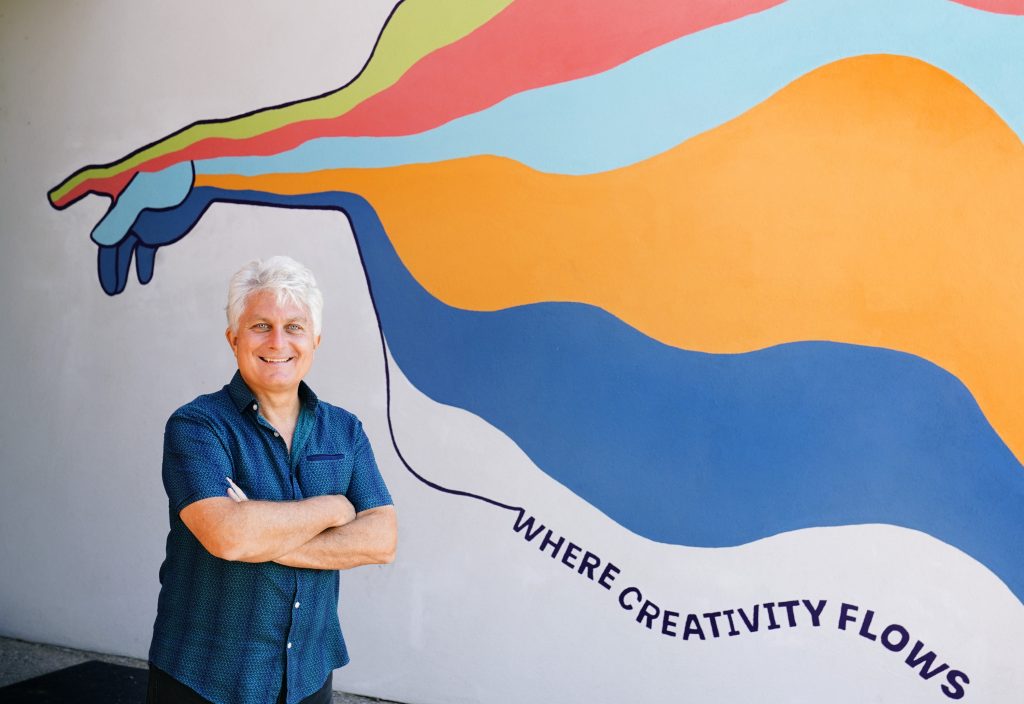
EDITOR'S NOTE: This story was originally published in the November 2023 issue of GCU Magazine. Digital version
When Dr. Craig Detweiler landed at Grand Canyon University in 2021, he saw a vibrant, faith-filled arts community. So he was flabbergasted when he was asked if he knew the fine arts program was dissolved in 2006 during the University’s slim years, only to be revived four years later.
“Actually, I wasn’t too aware,” said Detweiler, Dean of the College of Arts and Media. “I sort of found out about that afterward.”
There is nothing little about what has happened since his arrival.
Detweiler oversaw the department’s name change from the College of Fine Arts and Production to the College of Arts and Media, a title more reflective of the current times and the advent of social media and other technology.
CAM also earned a transformative $300,000, three-year grant from the Bridges/Larson Foundation in fall 2022, a coup for the University’s film students. The grant helped transport 12 award-winning students to the Sundance Film Festival, where they made career-boosting industry connections.
Then there was “Identity Crisis,” filmed on campus in January 2022.
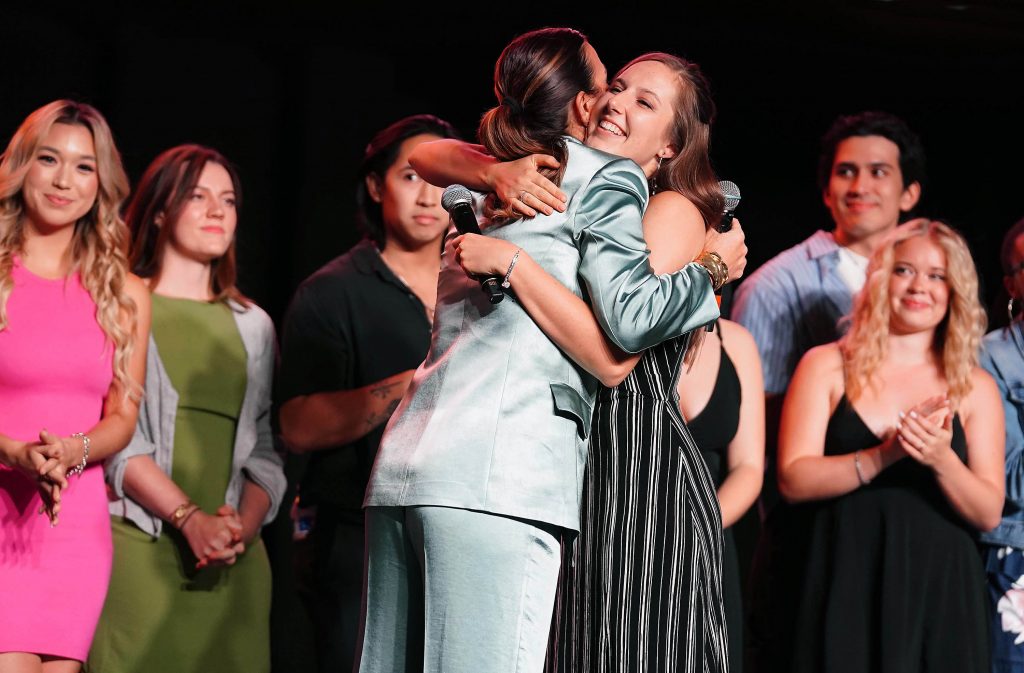
About 150 students worked on the movie. Filmmakers returned in September to answer questions from CAM students for nearly 90 minutes before attending a purple-carpet premiere at GCU Arena.
And CAM is not about to get complacent.
It plans to implement three new degrees – Editing and Visual Effects, Commercial Music, and Gaming and Game Design.
Technology is at the forefront of those degrees, in keeping with GCU’s goal to educate students in emerging careers. Those degrees will allow students to craft a story and spread their work from a dorm room or home.
“We have 2,000 storytellers in CAM. That’s a HUGE number – larger or as large as most Christian colleges’ student bodies,” said Detweiler of the college’s students, who might be majoring in a discipline in another college but who are also dance, theatre or social media minors. “That’s a big, dramatic engine for the University, particularly when our students serve (as student workers in) athletics and marketing. We have hundreds of jobs available for savvy students to begin their professional practice – even now.”
After the production of “Identity Crisis” concluded, director Shari Rigby hired GCU student Hannah Watts to help her on her next project for Pure Flix, called “Divine Influencer,” in the Atlanta area. And filmmakers hired other graduates for the feature thriller “Condition of Return” and the Western “Far Haven.”
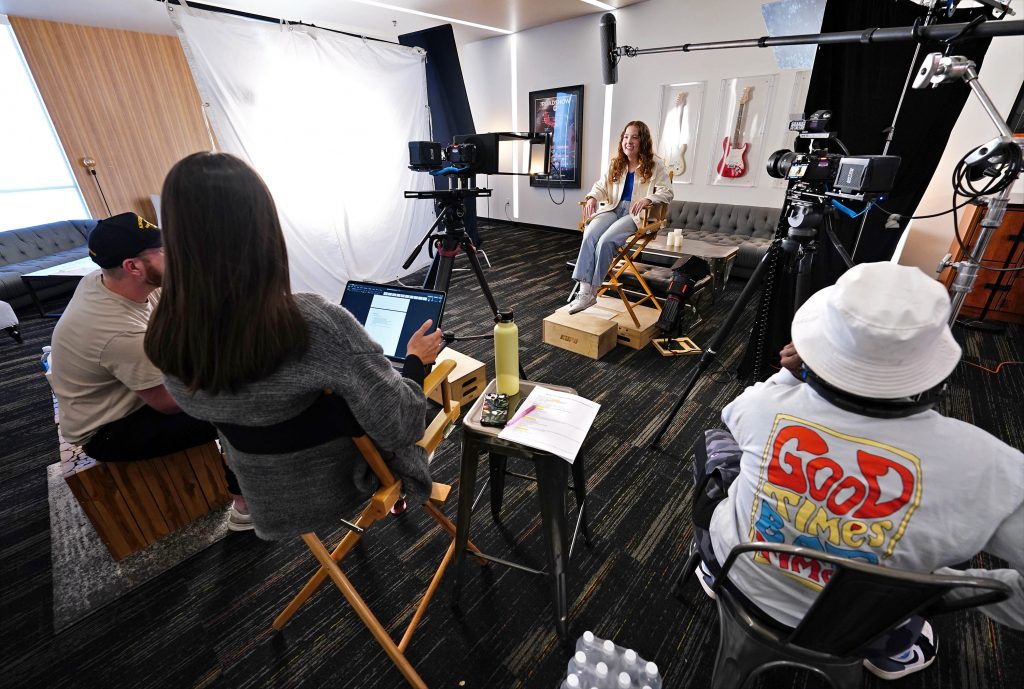
Detweiler’s background – a bachelor’s in English, master’s in fine arts, and doctorate in theology and culture at Fuller Theological Seminary – meshed with the “challenge of creating good, true and beautiful online education.”
“GCU’s national reach via online is so formidable that I was attracted to the idea of making this excellent, affordable education available to artists and media-makers,” Detweiler said.
CAM offers classes online in graphic design, social media and film, with online enrollment growing to more than 600 students.
“We’re currently developing new programs in commercial music and game design, as well. We see all of these arts majors united by technological expertise.”
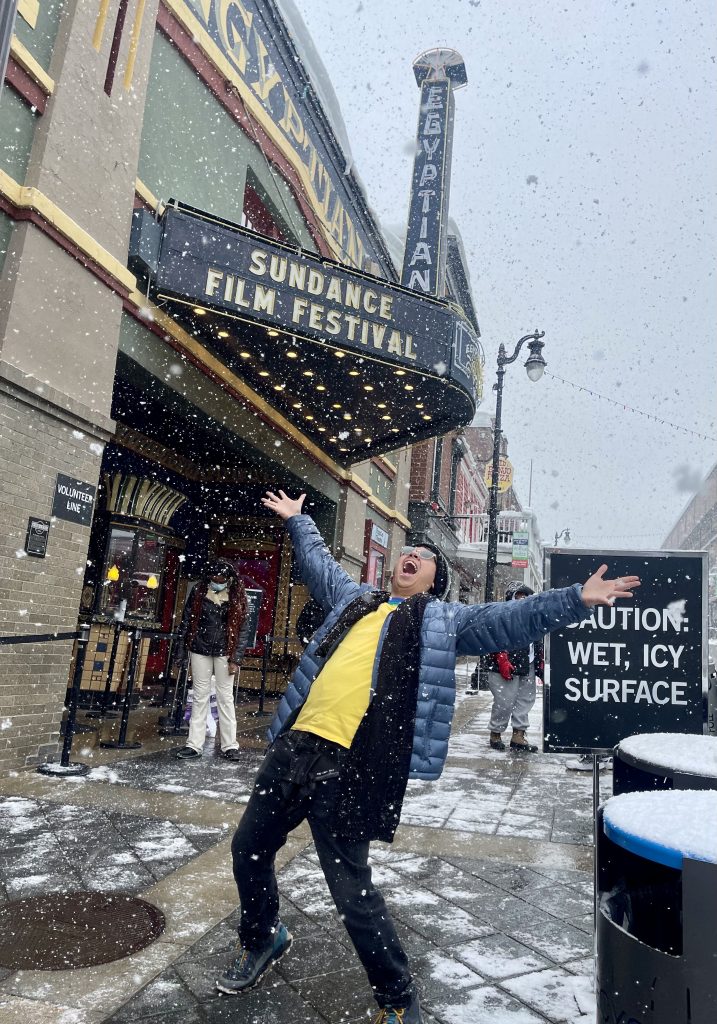
The college’s new name is unifying and reflects GCU’s push for the campus’ various academic disciplines to work together toward the greater good of the product.
“I think with the old name, it was sort of viewed as two distinct things,” Detweiler said. “You can do fine arts, OR you can do production. We want all of our students to think of themselves as artists who are communicating through a variety of media.
“We went from an either-or-ness to a both-ness. All our CAM majors need each other to tell their story effectively.”
This was a big part of his mission when he accepted the job, going even further with a comprehensive theme spelling the letters CAM:
C – Creative collaboration
A – Authentic storytelling
M – Mission-minded
When he first arrived, Detweiler believed arts and media remained a spirited part of campus life, but students and professors were so consumed with staging events that they did not have time to promote them.
“What we’re doing now is making sure our 800 designers and social media majors are involved in the process of telling the CAM story, and so it’s understanding we have enough storytellers behind the camera to express the wonder of what we’re doing in front of the camera – and getting those things in sync,” Detweiler said.
That extends to areas such as the Theatre Department, where Cindi Calhoun was hired this fall as costume manager and GCU alum Klay Wandelear as technical director. They’re just two of the faculty in this new era of CAM helping craft the skills of those behind-the-camera student storytellers.
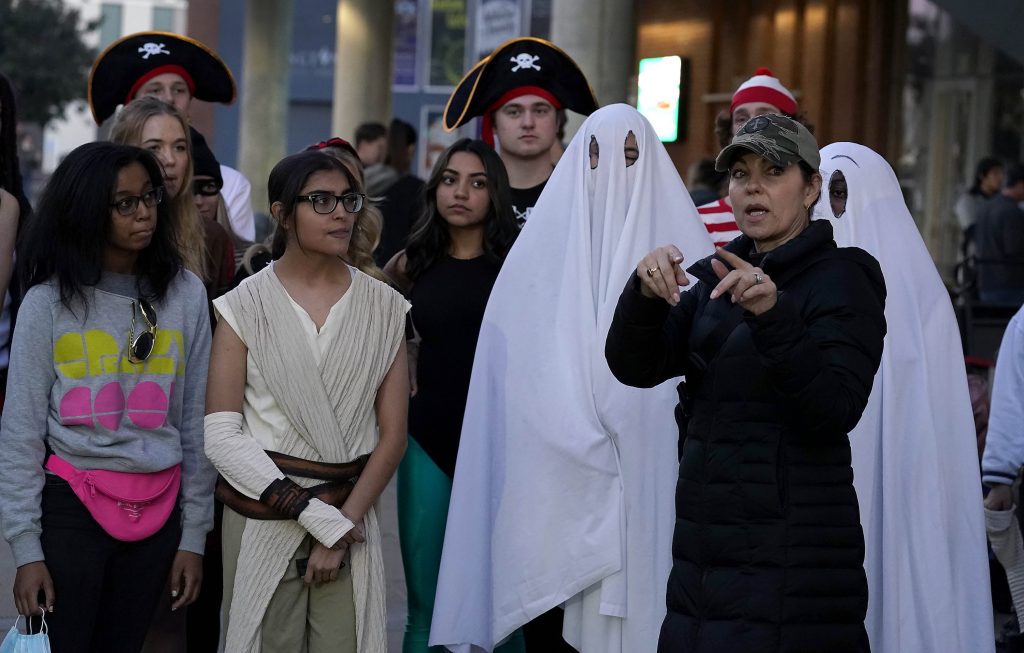
William Symington, Assistant Dean of Theatre and Dance, said the biggest change he has seen since the move from COFAP to CAM is that the college’s hard work is being seen.
“The talents and skills of our staff, faculty and students are being celebrated and appreciated for the exceptional level they have always achieved,” Symington said. “This can only help GCU and our students.”
The college remains intent on sharing stories by students in the most modern forums. That means not just performing live but capturing that performance and sharing it via social media, as well through electronic distribution, such as YouTube or Vimeo.
“It’s understanding the role of technology in 21st century storytelling,” Detweiler said. “… That’s how you reach audiences through the live experience, as well as through the small screen in their pocket.”
***
Related content:
GCU News: Hollywood returns to GCU for film's premiere
GCU News: It's lights, camera, action on a chance to get film funding, go to Sundance



































































